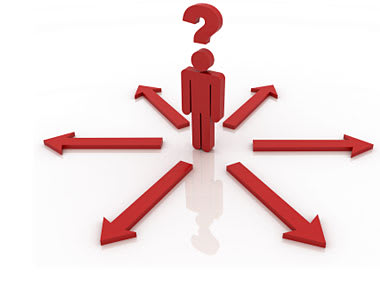Finding true love seems to be a major challenge for adults today. How do you meet someone; what qualities are important to you; how will you know when it’s the right one?
The Jewish deaf and hard of hearing community faces all of these challenges and more since communication is the first issue and foremost issue they need to confront. Darby Yusapov, a deaf signing employee of the Orthodox Union summed it up:
“My first thought is always about communication. My ideal, A plus match would be able to use sign language because it would then be so much easier for us to understand one another; we would have the capacity for deep, frequent conversations“
Darby, who was brought up signing and immersed in deaf culture, went on:
“My second thought is that a deaf partner would be preferable, since she would most likely understand the experience of being deaf since childhood.”
Being part of the “deaf culture” and understanding deaf issues is crucial when young deaf adults are looking for their matches.
Bu these days, a profound shift in the deaf community has become apparent. Children identified with hearing loss at birth or soon after are now being amplified at earlier stages of development as a result of technology.
Cochlear implants, unlike hearing aids, fill in for nonworking parts of the inner ear by transmitting sound to the brain. Development of this technology began in the ‘60s with the first successful implants occurring in the late ‘70s. Sophisticated implants are now increasingly the choice for young children born deaf. Research shows implant surgery during the first year of life leads to more highly developed speech skills which result in educational mainstreaming of recipients. And now, one generation later, an entirely new world of options is open for consideration.
A dating-age deaf /hard of hearing individual who has worn hearing aids/cochlear implants since an early childhood may not necessarily be looking for signing and deafness as the first characteristics. Many of these adults are now using oral communication and attending mainstream schools. As Darby continued to explain:
“I am looking for a Jewish girl with similar values as I have. And although a deaf mate would be ideal, I am not necessarily looking for someone deaf. I am part of the Jewish community at large and will look for my spouse from the general population.”
Critical to both groups is the need to find a Jewish spouse. In the past, the rate of intermarriage among the deaf was close to 60%. Our Way/National Jewish Council for Disabilities (NJCD) have worked tirelessly to overcome this statistic and lower the rate. Through the Jewish Deaf Singles Registry, we promote programs and activities that allow opportunities for deaf/hard of hearing singles to meet with the intention of dating and marriage. We support deaf individuals regardless of their religious affiliation or their mode of communication. As Darby explained:
“Final thought is the importance of religion. A modern Orthodox to Conservative Jewish woman would suffice. I’d like to keep Jewish tradition passing to my children.”
Darby, however, went on to note that ideal thoughts about a life partner often require a reality-check and the ability to be flexible:
“We all need to learn to compromise in order for any match to work. So if I’m introduced to a woman who can make me laugh, I’m interested! It’s been months since I’ve met someone who could really make me laugh. I want a companion to spend time with, who will also be able to make compromises and enjoy herself with me. If you’re the one, then my built-thick-walled heart will collapse. Tell me about yourself!!”
Understanding the new needs of Jewish deaf singles, who no longer limit themselves to a deaf shidduch, Our Way is reaching out and assisting members who want to meet a wider variety of potential mates. To this end, Our Way has partnered with SawyouatSinai.com, an OU approved website for Jewish dating and matchmaking.
Our Way/NJCD hopes to accommodate deaf/hard of hearing members so they can access all possible shidduchim within the general Jewish community. At the same time, Our Way works with couples to overcome some of the unique challenges they may be facing when one or both of the partners in the relationship exhibit a hearing loss. Communication is the first and foremost challenge that Our Way couples need to address. In reality, all new couples face communication challenges of some sort.
To that end, Our Way/NJCD is pleased to announce the participation of Mrs. Eileen Leff, a shadchnit from SawYouAtSinai, at the upcoming Singles Retreat on February 11-13, 2011 (Jewish Center, Manhattan). Eileen will be meeting deaf/hard of hearing members as well as presenting a workshop on internet dating and follow-up.
Our Way/NJCD looks forward to providing this newest resource in pursuit of assisting its deaf/hard of hearing members find their “bashert”.
Batya Jacob is the Program Director of Our Way. She is also Program Director for Educational Services & NJ Association of Jewish Day Schools. To find our more, please visit Our Way/National Jewish Council for Disabilities (NJCD) and Our Way Singles Retreat on February 11-13.
The words of this author reflect his/her own opinions and do not necessarily represent the official position of the Orthodox Union.
